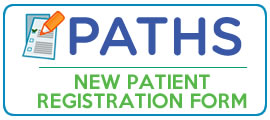What does an electrocardiograph technician do?
Electrocardiograph (EKG or ECG) technicians operate equipment that measures, monitors, and graphically traces the electrical activity of the heart. Physicians use the graph (electrocardiogram/EKG/ECG) to diagnose and monitor patients’ heart problems.
What might an electrocardiograph technician do in a workday?
- obtain information for EKG records.
- connect electrodes to leads from the EKG machine.
- conduct the electrocardiogram.
- instruct patients to perform physical exercise as specified by the physician.
- identify abnormal heart rhythms.
- recognize emergencies and assist the responding physician.
With additional on-the-job training and experience, EKG technicians may move to positions that perform some or all of the following:
- monitor special EKGs that record heart action over 12- to 24-hour periods.
- insert a catheter (tube) into a blood vessel leading to the heart to examine.
- its condition with the aid of a television monitor.
- use procedures to test the lungs and heart.
- record heart murmurs and other abnormal sounds.
- use ultrasound equipment.
- record heart activity during physical exercise.
- monitor special, three-dimensional tracings of the heart's electrical activity.
- schedule appointments, maintain patients’ files and send bills.
How much does an electrocardiograph technician earn?
- $16,000 - $23,000
How do I become an electrocardiograph technician?
Students intending to pursue a career as an electrocardiograph technician should take challenging high school courses in science, math, and computer technology.
The minimum educational requirement for electrocardiograph technicians is high school graduation or its equivalent, along with supervised on-the-job training, usually lasting eight to 16 weeks. Specialized training requires 12 to 24 months.
Where else can I learn about becoming an electrocardiograph technician?
The American Society of Echocardiography
2100 Gateway Centre Boulevard, Suite 310 / Morrisville, NC 27560
tel: (919) 861-5574 / web: www.asecho.org


